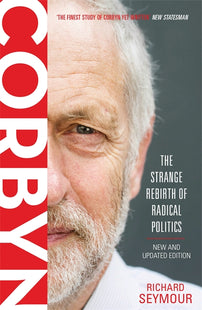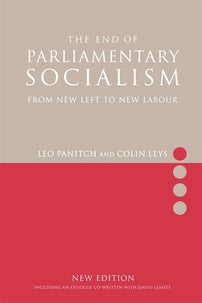The Meaning of Boris Johnson
How can we make sense of the passage of the Conservative party from serving up fierce class warriors determined to put the labour movement and the working class in its place, to a transparently self-serving charlatan happy to “fuck business” and drive the UK economy over a cliff in pursuit of the fancies and phantasms of a no deal Brexit? Phil Burton-Cartledge analyses what Boris Johnson, Britain's new prime minister, means for the Conservative party.

That Boris Johnson is manifestly unfit to serve in any capacity as an elected official, let alone as Prime Minister, is beyond dispute. The question we have to ask ourselves is how this situation has come to pass.
The Conservative Party is imagined by friend and foe alike to be ruthlessly power-seeking, the party that puts its Labour opponents to shame in the single-minded pursuit of office and the interests of the class interests it articulates and defends. Supposedly pragmatic, considerate, and far-sighted, since the election of Margaret Thatcher in 1979 its record has proven anything but. Yet there is a world of difference between her, who by any token mastered the detail of her brief and put in the hours and someone like Boris Johnson, whose career is marked by the complete absence of these statesmanlike virtues. How can we make sense of the passage of the party from serving up fierce class warriors determined to put the labour movement and the working class in its place, to a transparently self-serving charlatan happy to “fuck business” and drive the UK economy over a cliff in pursuit of the fancies and phantasms of a no deal Brexit?
None of this is accidental. It is a consequence of the crisis of the Conservative Party; one rooted in its long-term decline. During the post-war period the Conservative Party mushroomed into a mass organisation with more individual members than Labour, peaking at just shy of three million in the late 1940s and early 50s. There were a number of reasons for this. In the 1920s and 30s, the Tories led vote drives, organised country fetes and fairs, engaged in philanthropic and charitable good works, and toured the countryside with portable cinema, bringing a mixture of news and propaganda to villages and hamlets not well connected to cities and the larger towns. In the expanding suburbs and some inner city areas, Conservative Association bars were hubs of communal life for the petit bourgeois and Tory-voting workers, and for those determined to move up the social hierarchy joining and participating in the party’s social scene was a relatively accessible way of networking with and forging relationships with one’s social betters. Party membership was a viable social mobility strategy. Therefore while democracy was almost entirely absent, the mass party was a cross-class community of sorts; one that reinforced fealty and loyalty from its base to the patrician aristocrats and gentlemanly capitalists who led the party.
As the post-war period wore on, the party base slowly eroded: the state expanded as the strength of organised labour grew, and consumerism became the cultural lodestar of the booming economy. Other, more privatised, leisure pursuits commanded the attention of the faithful and one could easily get on without rubbing shoulders with local activists and country gents at association gatherings.
Meanwhile, the Tory party was experiencing a quiet revolution. In his The Strange Death of Tory England, Geoffrey Wheatcroft half-notes and half-mourns the passing of the Magic Circle, the party grandees who controlled the party through horse trading and conversations in quiet corners of the Westminster. Their power waned as self-made businessmen and professionals from the upper middle class increasingly filled out the Tory benches, and demanded more of a say over the party's direction.
With the humbling of Ted Heath by the miners, the election of Thatcher as leader in 1975 represented a passing of the torch, and one with political significance for the class composition of British capital. In the sharpening industrial disputes of the 1970s, one wing of the Tories were keen for confronting the labour movement, others desired the more conciliatory approach that had prevailed since 1945. The cautious faction had a thousand ties to big industrial capital, which had a stake in the post-war set up. Unsurprisingly, those with less at stake were the more enthusiastic for confrontation.
When the Tories won their set piece battles against the labour movement in the 1980s, it was more than pithead communities who suffered. As industries were shuttered and miners thrown out of work, small businesses that served the towns and villages, and the capital tied up in heavy industry and the supply chains went to the wall. Thatcher's Tories defeated organised labour, but at the price of fracturing its own base. The efforts at inculcating a new one through Right to Buy, the "popular capitalism" of privatising utilities, tax breaks and cheap credit were enough to secure majorities in 1987 and, unexpectedly, in 1992, but it did not generate a lasting affiliation. Indeed, Thatcherism accelerated the privatisation of social life, ensuring the new support it attracted was more mercenary in its affiliations while old networks and institutional transmission belts evaporated. In their survey of Tory party members, Paul Whiteley and his colleagues found that as late as 1994, the bulk of members were decidedly non-Thatcherite in terms of value orientation, which suggested they were not being replaced like-for-like by zealous neoliberals. It was almost as if the party was retreating from the rest of society. The association bars were shutting down, party work and charitable concerns were hardly comfortable bedfellows, and the political footprint became increasingly reliant on rich donors and sympathetic newspapers.
The fallow years of New Labour deepened Tory woes further. With capital flocking to Blair and Brown as the new custodians of the business interest, between 1997 and 2005 the party was saddled with leaders seemingly convinced that the path to success meant doubling down on moral illiberalism and “banging on about Europe”. As absurd and deluded this strategy appears from today, in the context of suffering its worst period of sustained defeat in its history, holding together the core of the party when there was no hope of returning to government was, from its point of view, relatively sensible. However, it did inculcate an unwelcome habit among the Tory party’s leading figures: one of extreme short-termism, and a party-centeredness to the exclusion of all else.
Therefore when David Cameron assumed the leadership and self-consciously put distance between his new socially liberal heir-to-Blairism versus the nasty party diagnosed by his successor, his period of opposition was still characterised by opportunism and a relentless search for short cuts. The 2008 crash was appropriated as a means of attacking Labour "profligacy", a theme that would resonated with older (current and former) Tory voters habituated to Thatcherite soundbites about thrift and sound money, and provide a cover for turning a crisis of private capital into one of public debt – a means of dismantling New Labour’s improvements to public services, eroding social security further, and opening even more areas of state provision to markets.
Nevertheless, Cameron was not able to overcome the fracturing of capital nor reverse the long-term decline of his party among the electorate, which was now expressing itself in stark age splits. The deficit determinism of Osbornomics offered new opportunities for capital and helped drive down the bargaining power of workers, but its twists and turns were less matters of ideology – as per standard Labourist critiques of Tory austerity – and more the perceived short-term interests of party polling and a two-nation project turning on binary oppositions: strivers vs the skivers, can't work vs won't work, and so on. This short-termism on economic matters led to a series of increasingly reckless gambles for diminishing returns: a narrow win for Better Together in the Scottish independence referendum ultimately laid the groundwork for a reflex resurgence of Toryism north of the border. And the most damaging, the concession of a referendum on EU membership for the sake of neutralising the challenger threat of UKIP in a handful of seats. Cameron was able to cobble together a coalition just big enough to win a slim majority in 2015, but it all came undone when Nemesis caught up with Hubris and he resigned after losing the EU referendum.
When Theresa May stood outside Downing Street and delivered her one nation speech, this again promised a break with the past; but her ill-fated three years in the job proved even more short-termist than Cameron's time. After the disastrous 2017 general election, May’s premiership moved from one crisis of the parliamentary party to the next, while her Brexit strategy was determined solely by the pressures of party management. The wider interests of British capital were put aside as May struggled to hold the Tories together. The preservation of the party as the trusted vehicle of business, especially now Labour was under the leadership of the left and the Liberal Democrats remained on the fringes, was the overriding priority.
This leads to the cul-de-sac represented by Boris Johnson. Again, he has his own bombastic style of empty bravado, and plenty of Tories find him a beguiling and charismatic figure, but the core of his programme – the deliverance of Brexit regardless of its consequences – is exactly the same as May's. With the Brexit Party coming first in this year's EU elections, he knows that if the UK does not leave the EU by 31st October, it will be the ruination of his career and the likely death of the Conservative Party. For Johnson, this must be avoided at all costs, because a split right opens the possibility of the 1980s in reverse – a period of Labour hegemony while its parliamentary opposition is divided. The rhetoric may change, but the extreme short-termism is set to continue.
Johnson has become Prime Minister because he is the embodiment of Tory decline. A mouther of empty quips, a chimney of hot air, a man for whom the descriptors limited, lazy, and decadentfit like a tailored suit. He is the chosen man because he is the Conservative Partyin 2019 – the condensation of its frailties and crisis tendencies in a single figure.
If you think David Cameron and Theresa May were terrible Prime Ministers, Boris Johnson is about to educate you.
Phil Burton-Cartledge is a lecturer of sociology at the University of Derby
[book-strip index="1" style="display"]

